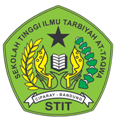Micro Teaching as a Teacher's Weapon Against Digital Distraction
DOI:
https://doi.org/10.61166/classroom.v2i1.34Keywords:
Micro teaching, digital distractions, teaching strategies, classroom management, educational technologyAbstract
The development of digital technology has brought about major changes in the world of education, both in terms of ease of access to information and new challenges, such as increasing digital distractions in the classroom. The use of devices such as mobile phones and laptops often distracts students from learning materials. To overcome this, teachers need to have effective and adaptive teaching strategies. One relevant approach is micro teaching, a small-scale teaching training method that focuses on improving pedagogical skills and classroom management. This article discusses how micro teaching can equip teachers to deal with digital distractions through structured, reflective, and practice-based exercises. Theoretical studies and case studies show that teachers who take part in micro teaching training tend to be better prepared to face the challenges of the digital classroom, and are able to create a more focused, interactive, and productive learning environment.
References
Allen, Dwight W., dan Kevin Ryan. Microteaching. Reading, MA: Addison-Wesley, 1969.
Prensky, Marc. “Digital Natives, Digital Immigrants.” On the Horizon 9, no. 5 (2001): 1–6.
Rosen, Larry D., Aaron F. Lim, L. Mark Carrier, dan Nancy A. Cheever. “An Empirical Examination of the Educational Impact of Text Message-Induced Task Switching in the Classroom: Educational Implications and Strategies.” Educational Psychology 31, no. 1 (2011): 93–102. https://doi.org/10.1080/01443410.2010.510976
Schön, Donald A. The Reflective Practitioner: How Professionals Think in Action. New York: Basic Books, 1983.
Tokuhama-Espinosa, Tracey. Making Classrooms Better: 50 Practical Applications of Mind, Brain, and Education Science. New York: W. W. Norton & Company, 2014.
Downloads
Published
How to Cite
Issue
Section
License
Copyright (c) 2025 Vani Zakiyah, Euis Latifah, Muhammad Makbul Fauzan, M. Ryan Fauzi

This work is licensed under a Creative Commons Attribution 4.0 International License.













